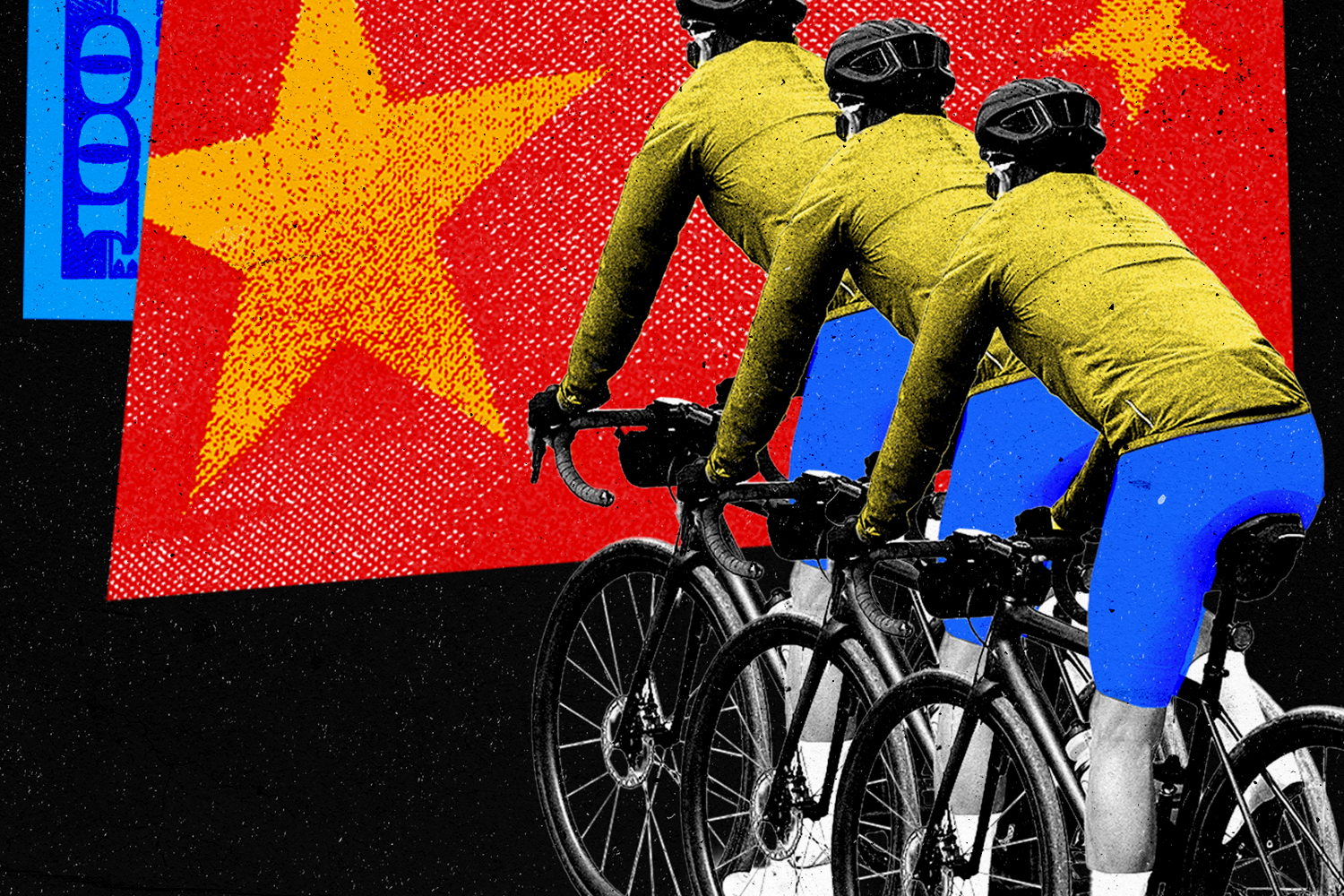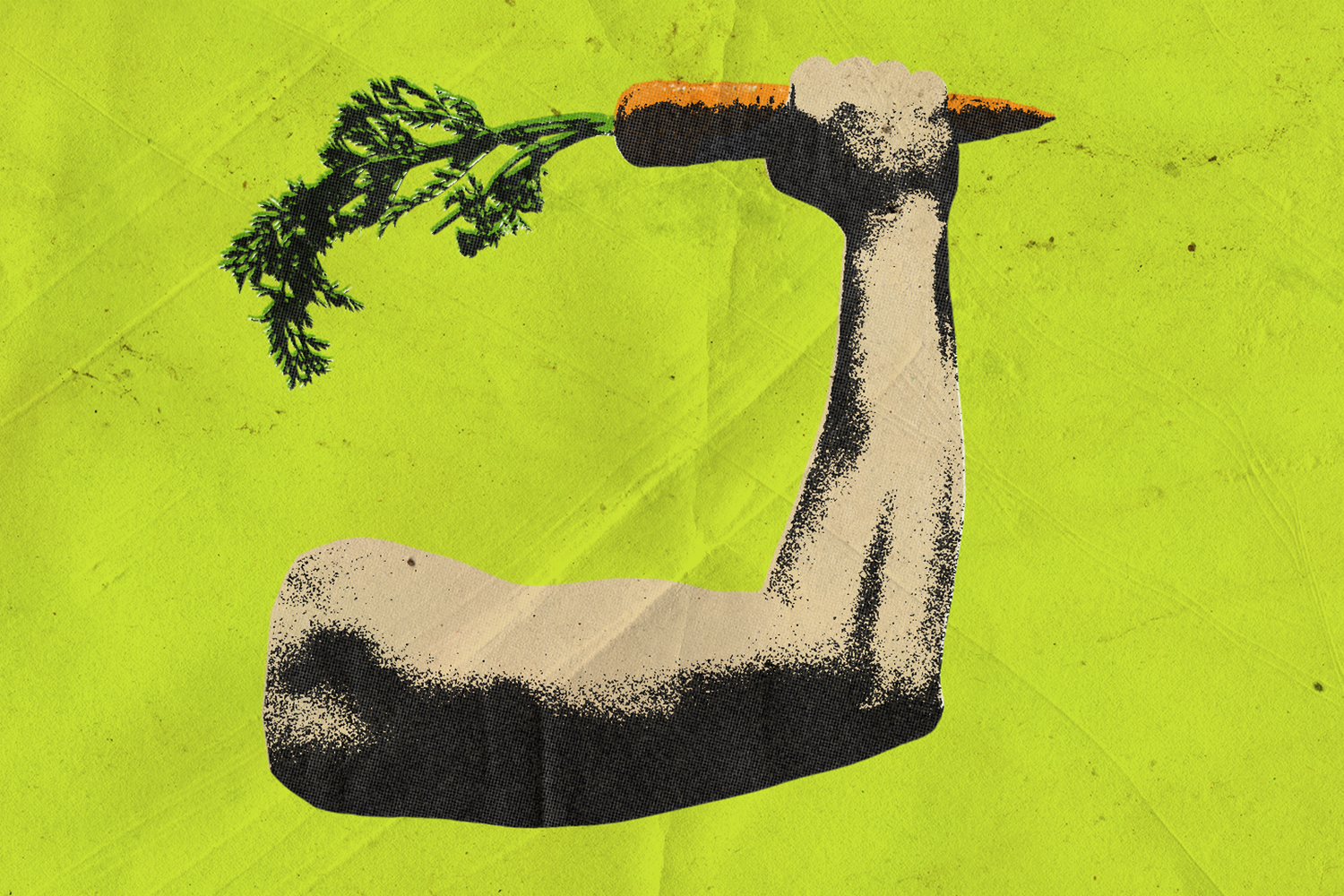Hey team, and welcome back to one5c! We’ve got two helpings of goodness for the waste-conscious among us this morning. The first is our pick for the Hey team, and welcome back to one5c! We’re a little Washington-heavy this week, so bear with us for a spell. A fair amount of the news blasting out of D.C. over the past week is running headlong into the pillars of a climate-minded existence—from how the new budget could impact energy bills to what trade tensions could do to life on two wheels. —Corinne
WHAT WE’RE INTO THIS WEEK
By Audrey Chan

Policy in the real world
Tariffs could flatten the U.S. bike industry
Swapping your car for a bike is one of the easiest ways to decarbonize your life––and the time to buy one (if you need one!) is nigh. President Trump’s latest tariffs are hitting the two-wheeled world. As of last week, e-bikes from China now face a 79% import duty, while regular whips could be slapped with tariffs as high as 90%. And China is the one place not getting a 90-day pause on tariffs. These new levies stack on top of existing ones, and that spells trouble for America’s bike industry: Almost no bikes are fully manufactured domestically, and retailers are bracing for prices to skyrocket in the next month, reports Heatmap.news. On top of that, the U.S. also scrapped an import loophole that lets low-cost bikes and parts sneak in duty-free. The silver lining? This could be the pre-owned market’s time to shine.
Good read
The lawyer taking climate action to the courts
Going to court over pollution isn’t new, but over the last decade, a series of cases have started to shift the status quo when it comes to pinpointing who exactly is legally responsible for the negative impacts of human-caused warming. Monica Feria-Tinta is among the jurists leading the charge, and Samira Shackle documents her journey, from fleeing a dictatorship to embracing environmental law, in a recent feature in The Guardian. The deep dive explores a groundbreaking case that argued state climate inaction violated the human rights of an Indigenous people––a success that has inspired similar arguments in courtrooms around the world. “I understand what it is to live in fear,” Feria-Tinta says. “This was an opportunity to be alive, and I took it seriously.”
Greenwatch
Reminder: ‘Clean’ coal doesn’t exist
Last week, President Trump signed executive orders to revive coal, bypassing Biden-era emission caps and allowing older power plants scheduled for retirement to keep burning. One order describes coal as “beautiful,” “clean,” “abundant and cost effective,” and capable of meeting the nation’s rising electricity demand. What it fails to mention, however, is that coal is the single-largest source of fossil fuel carbon emissions (40%) and contributed to some 460,000 U.S. deaths between 1999 and 2020. Worldwide, coal is on the downslide: Nearly 60 countries have drastically scaled back their plans for building coal-fired power plants since the Paris Agreement. Not to mention, it’s not as affordable as renewables (or even natural gas), so keeping coal alive is all risk and no reward.
Action alert
Tell Congress to leave green tax credits alone
Last Thursday, the House of Representatives passed a budget blueprint that could set the stage to cut trillions from key climate programs, including the Inflation Reduction Act’s (IRA) tax credits for everything from electric vehicles to manufacturing clean energy solutions. While the blueprint doesn’t contain any specific monetary rollbacks, it does require only $4 billion in savings––a small enough target that clean energy credits could squeak by (for now). As the Senate picks up the baton with its own aim to cut at least $1.5 trillion, the future of the IRA’s incentives could be precarious. Four Republican senators recently wrote a letter to Majority Leader John Thune urging him to protect IRA programs that have lowered utility bills for their constituents. Call or write your senators to let them know you care about keeping these tax credits in place.
MIC-DROP CLIMATE STAT
100k
The number of households’ worth of electricity one modern AI-centered data center uses. Those under construction might use 20 times that amount, according to the latest report from the International Energy Agency on the impact of artificial intelligence on global power draw.
DEBUNKER
Does plant-based eating make you weak?
By Bridget Reed Morawski

Reducing your intake of animal products is one of the best ways to jump-start a climate-conscious lifestyle, but making the change can raise eyebrows. Folks who avoid animal products are somewhat used to the insinuation that they’re weak and perhaps even unhealthy. But in reality, a plant-based diet isn’t a one-way ticket to poor or even middling health. The most recent evidence? New Jersey Sen. Cory Booker, a well-known vegan, gave a 25-hour, record-breaking speech, displaying physical endurance and strength that both go against the prevailing cultural narrative.
But where does the idea come from that slimming down on animal products leads to a less healthy lifestyle—and does it hold any weight? Here’s what the experts have to say.
The roots of the weakness myth
Wariness about veganism and physical well-being are not unusual within meat-forward cultures, says Emily Belarmino, an assistant professor of nutrition at the University of Vermont. “There’s a very long history and a strong [academic] literature around the links between traditional views of masculinity and meat eating,” she says, noting that the way we talk about hunter-gatherer societies emphasizes manly figures procuring meat. That in turn stirs up feelings or fears about vulnerability and weakness if a person eats a diet lacking in meat, she adds.
Nick Cutsumpas, a former college basketball player and current plant-based eating coach, is one of many social-media creators who get hit with this narrative every day. Despite being active in the gym and spending his rest days in the garden, Cutsumpas told one5c he frequently receives messages calling him a “soy boy” and other derogatory terms to imply his veganism makes him weak or unmasculine.
While there is some risk in switching to plant-based without a plan, it’s typically healthier overall than going all-in on meat, says Teresa Fung, a nutrition professor at both Simmons University and the Harvard T.H. Chan School of Public Health. Some research has shown that cutting out animal products may up the chance of breaking bones, and vegans have a higher likelihood of developing a vitamin B12 deficiency. But on the flip side, Fung points out that “diets heavy [in] healthy plant foods have shown to reduce the risk of diabetes, cardiovascular disease, and some cancers,” as well as hemorrhagic strokes.
The protein question
“The first thing most people ask when you say you’re vegan or vegetarian is where you get your protein,” ultramarathoner Michael Wardian tells one5c. He’s been fully vegan since 2022, broken world records and participated in hundreds of marathons, despite some coaches assuming he would perform poorly if he didn’t eat meat.
When it comes to protein, most Americans don’t need to worry about it, says Fung. The American diet, even a plant-based one, has “so much protein in it that even when you are an avid athlete, that is enough,” she says. People who eat plant-based foods can generally fill the recommended daily minimum (about 0.36 grams per pound of body weight), but people doing intense training need to up that to between 0.54 and 0.77 grams per pound. Fung says a diet with a rich and varied mix of protein-dense plant foods—like beans, tofu, and tempeh—can get to those levels with careful meal planning.
If you plan on nixing meat and dairy, or even lowering your intake significantly, the change “does require a higher degree of planning and intentionality around your nutrients,” echoes Belarmino. Apps like MyFitnessPal can help track nutrients so you can mind your macros, while still keeping the planet at the top of your mind. It also doesn’t hurt to talk to your doctor before diving in, and to take any major eating shift at a pace that works for you.
